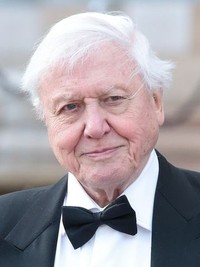David Attenborough

Sir David Frederick Attenborough was born on May 8, 1926 in Islesworth, Middlesex, England. He and his brothers, including future actor Richard Attenborough, were raised on the campus grounds of University College, Leicester, where his father was employed as part of the faculty. Richard developed an interest in nature and wildlife early in life, fostered by childhood collections and the attendance of lectures and presentations on animals and conservation. After two years of study at Clare College, Cambridge, Attenborough was drafted by the Royal Navy. He returned to civilian life by 1950, shortly after which point he got married and assumed a job as a producer and television presenter for the BBC, specifically for science and nature-oriented projects. In 1957, Attenborough and company launched the network's Travel and Exploration Unit, through which he continued to produce nature series. In the 1960s, Attenborough was instrumental in reshaping the nascent BBC Two with a more sophisticated bent than his predecessors had lain. Though by 1969 he had ascended to an executive position overseeing the BBC and BBC Two, the '70s saw Attenborough return to his preferred position of hands-on work with broadcasts. Among the major projects to spawn from this era were "Wildlife on One" (BBC One 1977-2005) and "Life on Earth" (BBC One 1979), both of which he narrated. Attenborough's later projects of renown included "The Blue Planet" (BBC One 2001) and "Planet Earth" (BBC One 2006), and "Seven Worlds, One Planet" (BBC One 2019).